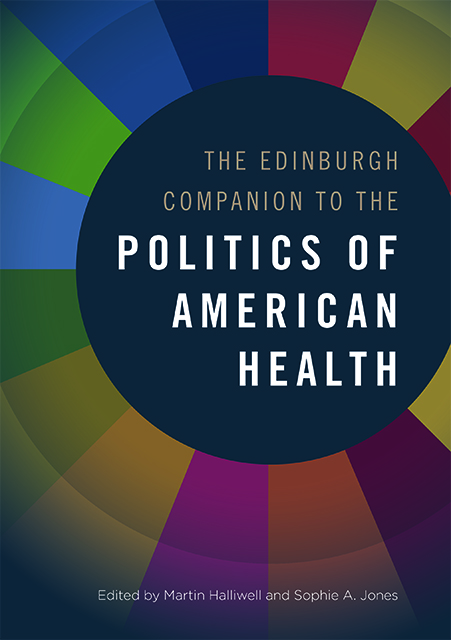Book contents
- Frontmatter
- List of Contents
- Notes on Contributors
- Introduction: The Political Landscapes of American Health, 1945–2020
- I Geography, Community and American Health
- II Critical Health Conditions: Debates and Histories
- III The Politics of Children's Health
- IV The Institutional Matrix of Health Care
- V The White House, Congress and Health Reform
- VI Justice, Ethics and American Health
- VII Public Health and Global Health
- General Bibliography
- Index
I - Geography, Community and American Health
Published online by Cambridge University Press: 12 August 2023
- Frontmatter
- List of Contents
- Notes on Contributors
- Introduction: The Political Landscapes of American Health, 1945–2020
- I Geography, Community and American Health
- II Critical Health Conditions: Debates and Histories
- III The Politics of Children's Health
- IV The Institutional Matrix of Health Care
- V The White House, Congress and Health Reform
- VI Justice, Ethics and American Health
- VII Public Health and Global Health
- General Bibliography
- Index
Summary
In October 2011, at a summit in Rio de Janeiro, Brazil, the World Health Organization (WHO) released the Rio Political Declaration on Social Determinants of Health, its strongest statement yet of the need to tackle health inequities both ‘within and between countries’. Focusing on the WHO's commitment to health as a fundamental right rather than a privilege, the Rio Declaration recognized that to eliminate inequities would require the sustained ‘engagement of all sectors of government, of all segments of society, and of all members of the international community’. By viewing social determinants in both economic and psychosocial terms, the declaration made three policy recommendations: ‘to improve daily living conditions; to tackle the inequitable distribution of power, money and resources; and to measure and understand the problem and assess the impact of action’. Set against the World Health Assembly's adoption of this policy framework in 2012, the five essays of this volume's opening section explore the material conditions and distribution of resources that underpin the health challenges facing diverse communities within the United States.
The focus on geography, immigration and race in this section calls for what the Rio Declaration termed ‘an intersectoral approach’ to analysing how social groups are classified with respect to life expectancy, comorbidities and access to health care. Ensuring that health data is adequately granular is often the most significant challenge for assessing how inequities are shaped by locality, citizenship and identity. With this in mind, the five essays adopt intersectoral approaches – historical, sociological, geographical, legal and community-based – and offer different kinds of evidence to highlight how US health care at a systemic level routinely fails to serve poor and less advantaged communities. As well as drawing correlations between environmental pressures and health challenges in localities ranging from Black communities living in South Side Chicago to poor isolated places in the Rocky Mountain West to the immigrant communities of Los Angeles County and Miami, these five chapters address the ways in which health activism can ‘close the gap’ (to evoke the title of a 2008 WHO report) by exposing health inequities and stimulating legislative and operational changes that might redress historically ingrained and newly emerging exclusions.
In the first chapter, Andrew Highsmith traces how racial and economic fault lines of the urban experience shaped post-World War II health disparities.
- Type
- Chapter
- Information
- Publisher: Edinburgh University PressPrint publication year: 2022



